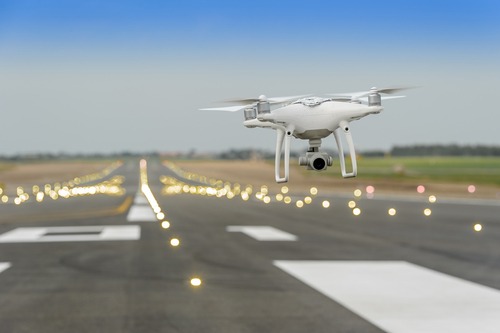
On Wednesday, U.S. Sens. Mark Warner (D-VA) and John Thune (R-SD) announced they had introduced a grant that would help to integrate drones into the U.S. airspace.
The legislation, Increasing Competitiveness for American Drones Act of 2023, would streamline the approval process for drone flights that go beyond the visual line of sight (BVLOS) and clear the way for the use of drones in the commercial transportation of goods.
“Drones have the ability to transform so much of the way we do business. Beyond package delivery, drones can change the way we grow crops, manage disasters, maintain our infrastructure, and administer medicine,” Warner said. “If we want the drones of tomorrow to be manufactured in the U.S. and not in China, we have to start working today to integrate them into our airspace. Revamping the process for approving commercial drone flight will catapult the United States into the 21st century, allowing us to finally start competing at the global level as technological advancements make drone usage ever more common.”
Currently, aircraft and BVLOS operations that take flight require unmanned aerial system (UAS) operators to seek waivers from the Federal Aviation Administration (FAA). No consistent sets of criteria have been laid out regarding the granting of waivers, however, which makes the process for approving drone flight slow, the senators said. This new legislation would require the FAA to issue a new BVLOS operations rule.
Specifically, the bill would require the FAA to establish “risk methodology” to determine the necessary level of regulatory scrutiny, the lawmakers said. The legislation would also create the “Associate Administrator of UAS Integration” and a UAS Certification Unit with sole authority to issue rulemakings, certifications, and waives.
The legislation is supported by several industry groups, including the Association for Uncrewed Vehicle Systems International (AUVSI), The Small UAV Coalition, The Commercial Drone Alliance, and others.
“Commercial drone operations provide valuable services to the American public and workforce – but significant regulatory hurdles are hampering these benefits from reaching their fullest potential and jeopardize U.S. global leadership in aviation. The regulatory challenges are not driven by safety, they are hampered by bureaucracy,” Michael Robbins, Chief Advocacy Officer of AUVSI, said.